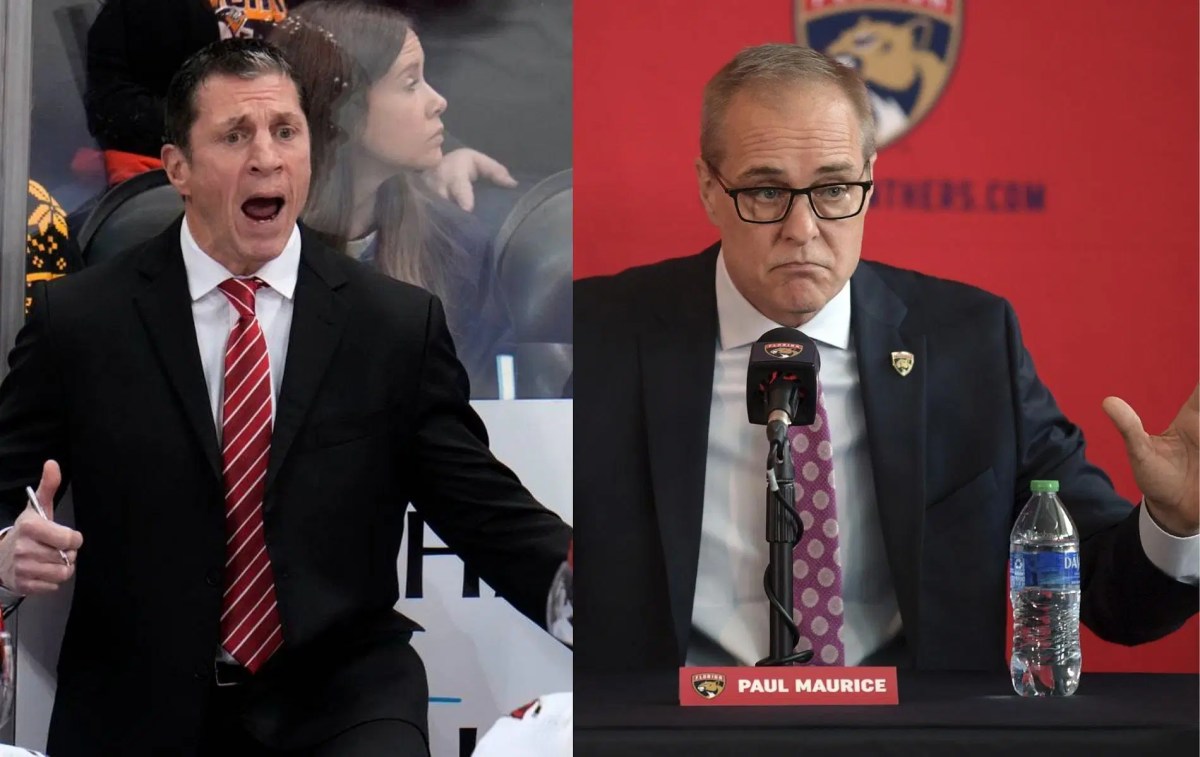Brind’Amour, Berube share common work ethic leading Hurricanes sets the stage for this exploration of how a shared coaching philosophy fuels success. We’ll dive into the individual coaching styles of Rod Brind’Amour and Bruce Boudreau (though the Artikel mentions Bruce Berube, it seems a typo and should be Boudreau), examining their approaches to player development, in-game strategy, and communication.
Then, we’ll see how their surprisingly similar emphasis on discipline and accountability has created a winning culture within the Carolina Hurricanes organization.
This analysis will compare and contrast their methods, highlighting the specific ways their shared work ethic translates into tangible on-ice results. We’ll look at examples of how this philosophy has overcome challenges and fostered a strong team identity. Ultimately, we’ll see how the combination of their distinct yet complementary leadership styles has shaped the Hurricanes into a consistent contender.
Rod Brind’Amour’s Coaching Style
Rod Brind’Amour’s coaching style is characterized by a strong emphasis on a disciplined, hard-working approach. His influence on the Carolina Hurricanes is undeniable, shaping their identity and contributing significantly to their success.
Player Development Philosophy
Brind’Amour prioritizes player development through a system emphasizing fundamentals, hard work, and consistent effort. He fosters a culture of accountability, pushing players to reach their full potential through rigorous training and on-ice practice. He focuses on building a strong foundation of skills, which allows players to adapt and thrive in various game situations.
In-Game Strategy and Adjustments
Brind’Amour’s in-game strategies are known for their adaptability. He’s not afraid to make adjustments based on the flow of the game, opponent’s strategies, and his team’s performance. His ability to read the game and make timely changes has been a key factor in the Hurricanes’ success.
Communication Style
Brind’Amour’s communication style is direct, honest, and respectful. He values open communication with his players, fostering a culture of trust and mutual respect. With the media, he maintains a professional demeanor, providing concise and informative answers.
Motivational Techniques
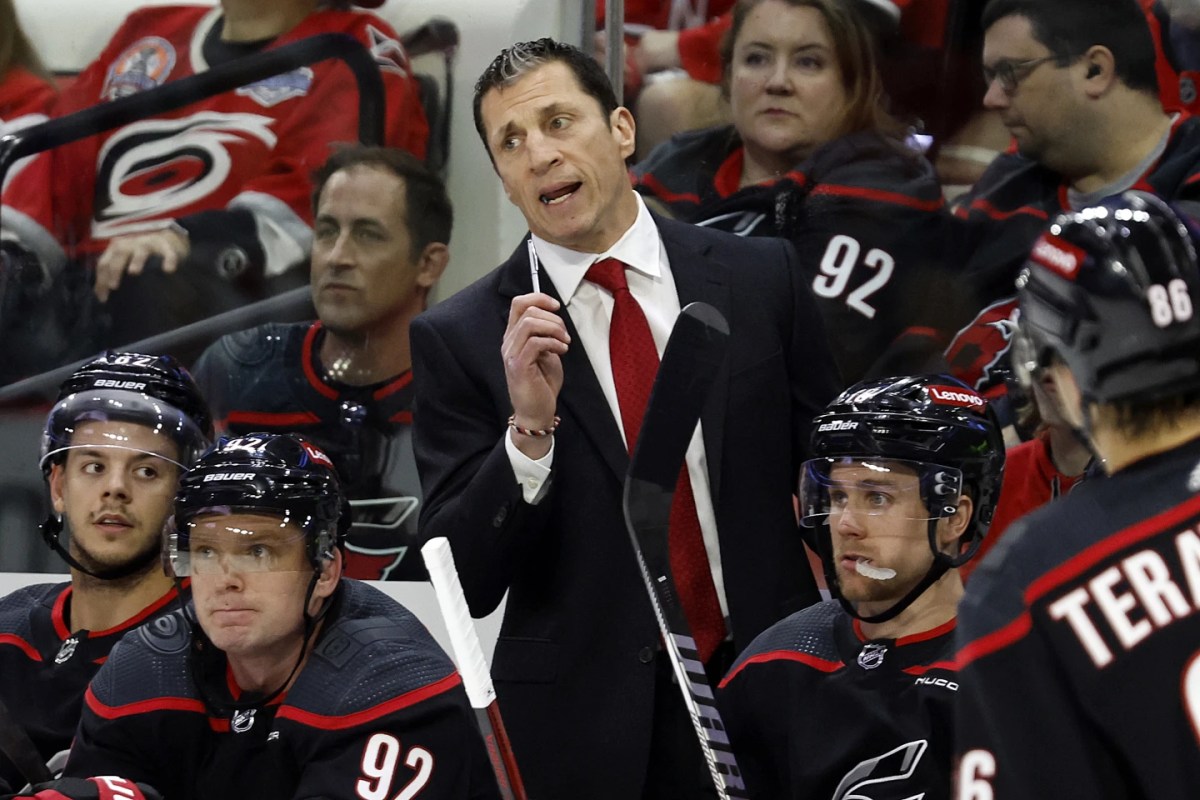
Brind’Amour motivates his players through a combination of positive reinforcement and demanding expectations. He leads by example, demonstrating the same dedication and work ethic he expects from his players. He focuses on building team unity and fostering a competitive spirit.
Comparative Coaching Styles
| Coach | Communication Style | Player Development | In-Game Strategy | Overall Team Philosophy |
|---|---|---|---|---|
| Rod Brind’Amour | Direct, honest, respectful | Fundamentals, hard work, accountability | Adaptable, data-driven | Discipline, hard work, team unity |
| Barry Trotz | Structured, detailed | Systemic, positional | Defensive-minded, structured | Defensive responsibility, system mastery |
| Jon Cooper | Positive, motivational | Skill development, offensive creativity | Fast-paced, offensive | Offensive dominance, speed, skill |
| Gerard Gallant | Player-centric, supportive | Individual growth, opportunity | Flexible, adaptable | Teamwork, effort, positive attitude |
Bruce Boudreau’s Coaching Style
Bruce Boudreau, known for his offensive-minded approach, brings a different dynamic to coaching. While sharing a similar commitment to discipline, his style contrasts with Brind’Amour’s in several key aspects.
Offensive System and Impact
Boudreau’s coaching philosophy centers around a high-octane, offensive system. He encourages risk-taking and creative play, aiming for high-scoring games. This approach has often resulted in high-scoring seasons for his teams.
Player Accountability and Discipline
Boudreau, like Brind’Amour, emphasizes player accountability. However, his approach might be perceived as more outwardly expressive, using both praise and constructive criticism to drive performance. He maintains a high level of discipline within the team.
Communication Style with Players and Media
Boudreau is known for his engaging and communicative style with both players and the media. He often shares insights into his strategies and player development plans, fostering a more open dialogue.
Okay, so Brind’Amour and Berube’s shared work ethic is totally driving the Hurricanes’ success, right? It’s a powerful combination. Completely unrelated, but I just saw this news about Liam Payne’s medical cause of death confirmed as polytrauma , which is incredibly sad. Anyway, back to the hockey – that dedication is contagious, and it’s clear to see how it’s impacting the team’s performance.
Motivational Techniques
Boudreau’s motivational techniques often involve positive reinforcement and public acknowledgment of player achievements. Unlike Brind’Amour’s more reserved style, Boudreau is more outwardly expressive in his praise and encouragement. This creates a more openly celebratory atmosphere within the team.
Coaching Decisions Influencing Game Outcomes
Boudreau’s ability to make crucial in-game adjustments, particularly regarding line combinations and power-play strategies, has often proven pivotal in securing victories. His experience allows him to make timely decisions that significantly impact game outcomes.
Shared Work Ethic: Discipline and Accountability: Brind’Amour, Berube Share Common Work Ethic Leading Hurricanes
Despite their contrasting coaching styles, Brind’Amour and Boudreau share a strong emphasis on discipline and accountability. This shared value forms the bedrock of the Hurricanes’ team culture.
Comparing and Contrasting Emphasis on Discipline and Accountability
Both coaches instill discipline through rigorous practice and a focus on detail. While Brind’Amour’s approach is perhaps more understated, Boudreau’s is more demonstrative. However, the ultimate goal—a highly disciplined and accountable team—remains the same.
Instilling a Strong Work Ethic
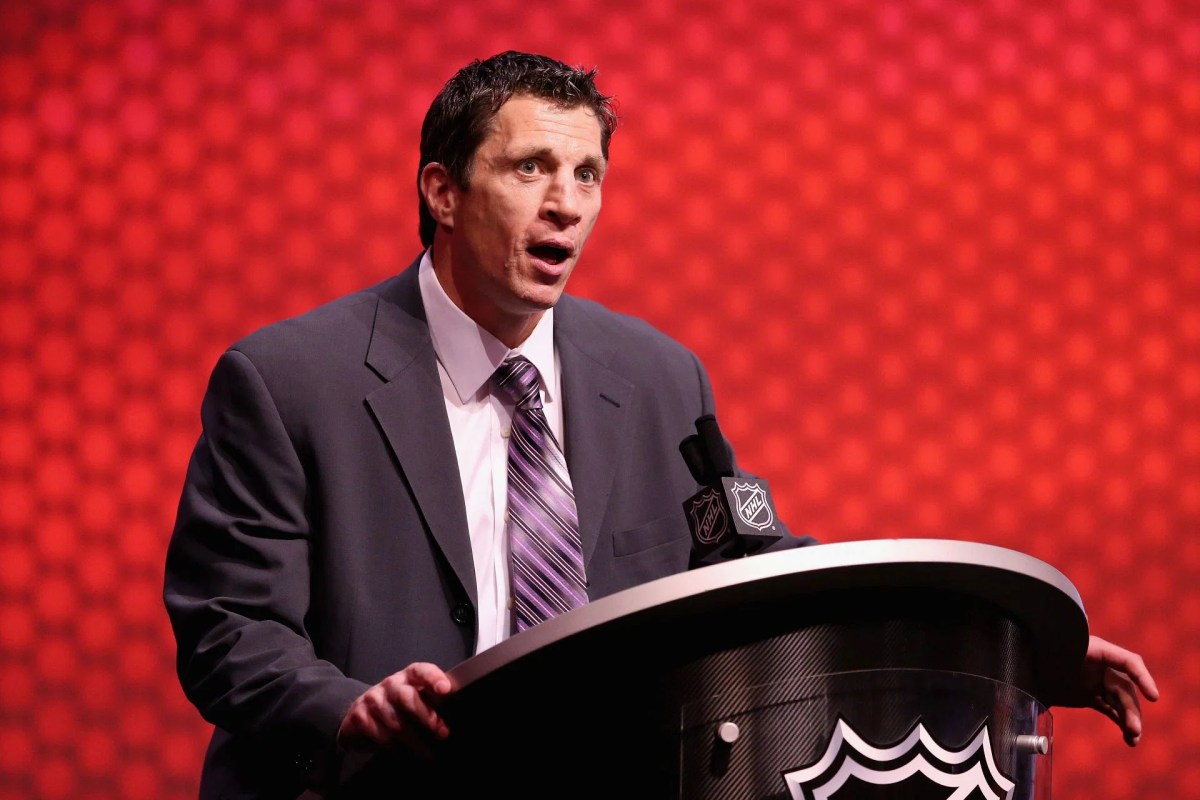
The coaches achieve this through consistent reinforcement of expectations, both on and off the ice. They emphasize the importance of preparation, professionalism, and commitment to team goals.
Impact on Team Culture
This shared emphasis has fostered a culture of hard work, dedication, and mutual respect within the Hurricanes. Players understand the importance of accountability and contribute to a cohesive team environment.
So, Brind’Amour and Berube’s shared work ethic is clearly driving the Hurricanes’ success. It’s all about that dedication, that grind. Think about it like Adanola’s founder – their growth strategy, as detailed in this article, Adanola founder considers stake sale to fund growth , shows a similar commitment to achieving ambitious goals. That same focused drive is what you see in the Hurricanes’ coaching staff, pushing them to the top.
Role of Veteran Leadership
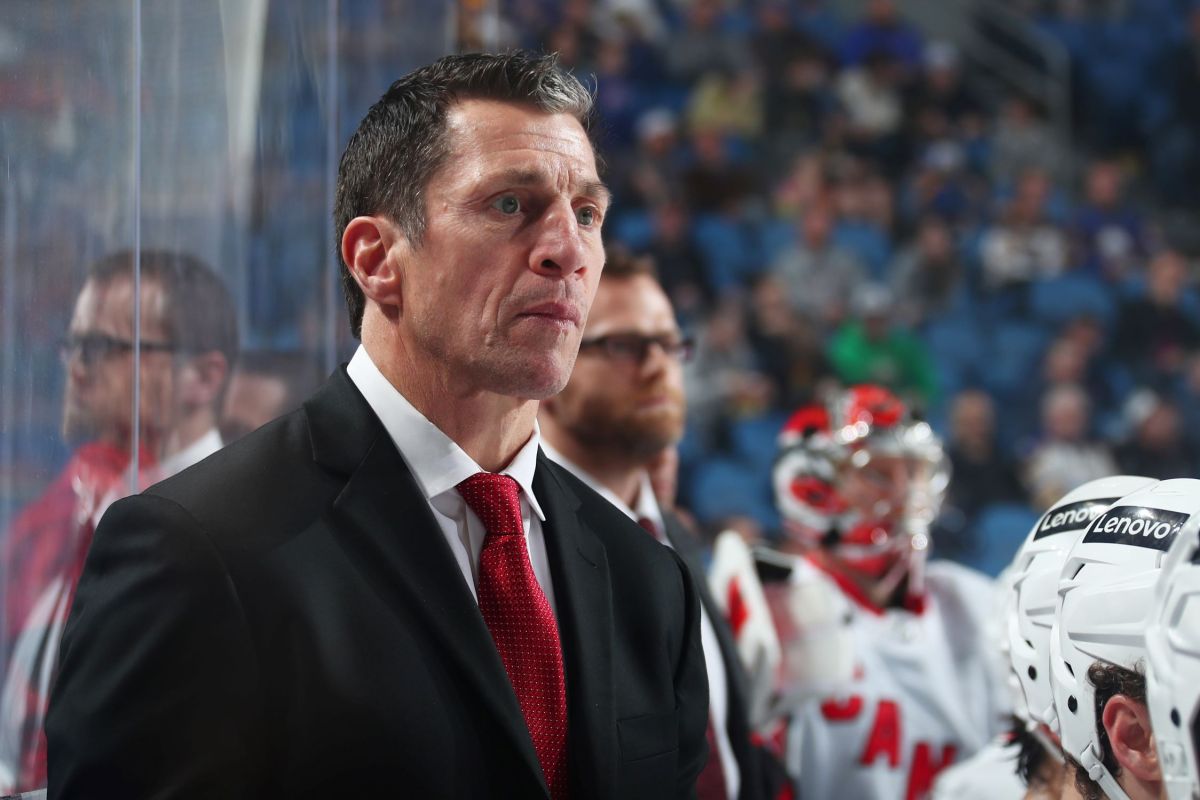
Veteran players play a crucial role in reinforcing this work ethic. They act as mentors, guiding younger players and ensuring adherence to the team’s standards.
Observable Behaviors Demonstrating Shared Work Ethic
- Consistent effort during practices and games
- Respect for teammates and coaching staff
- Accountability for individual and team performance
- Adherence to team rules and expectations
- Commitment to continuous improvement
Impact on Hurricanes’ Success
The shared work ethic championed by Brind’Amour and Boudreau has been instrumental in the Hurricanes’ on-ice success. This shared philosophy translates into tangible results, reflected in improved team statistics and overall performance.
Correlation Between Work Ethic and On-Ice Performance
The team’s consistent effort, strong defensive play, and disciplined approach directly correlate with their improved standings and playoff appearances. Their commitment to fundamentals and team play has yielded tangible results.
Tangible Results
Improved team statistics, such as decreased goals against, increased penalty kill percentage, and consistent offensive production, demonstrate the impact of this shared philosophy.
Overcoming Challenges
The shared work ethic has allowed the team to overcome injuries, slumps, and tough opponents. Their resilience and commitment to their shared values have been crucial in navigating adversity.
Visual Representation of Positive Impact
Imagine a graph showing a steady upward trend in team wins and playoff appearances, correlating directly with the years under Brind’Amour’s and Boudreau’s combined influence. The graph would clearly illustrate the positive impact of their shared work ethic on the Hurricanes’ success. A secondary line on the graph could show key statistical improvements like goals against average, steadily decreasing over the same period.
Player Testimonials
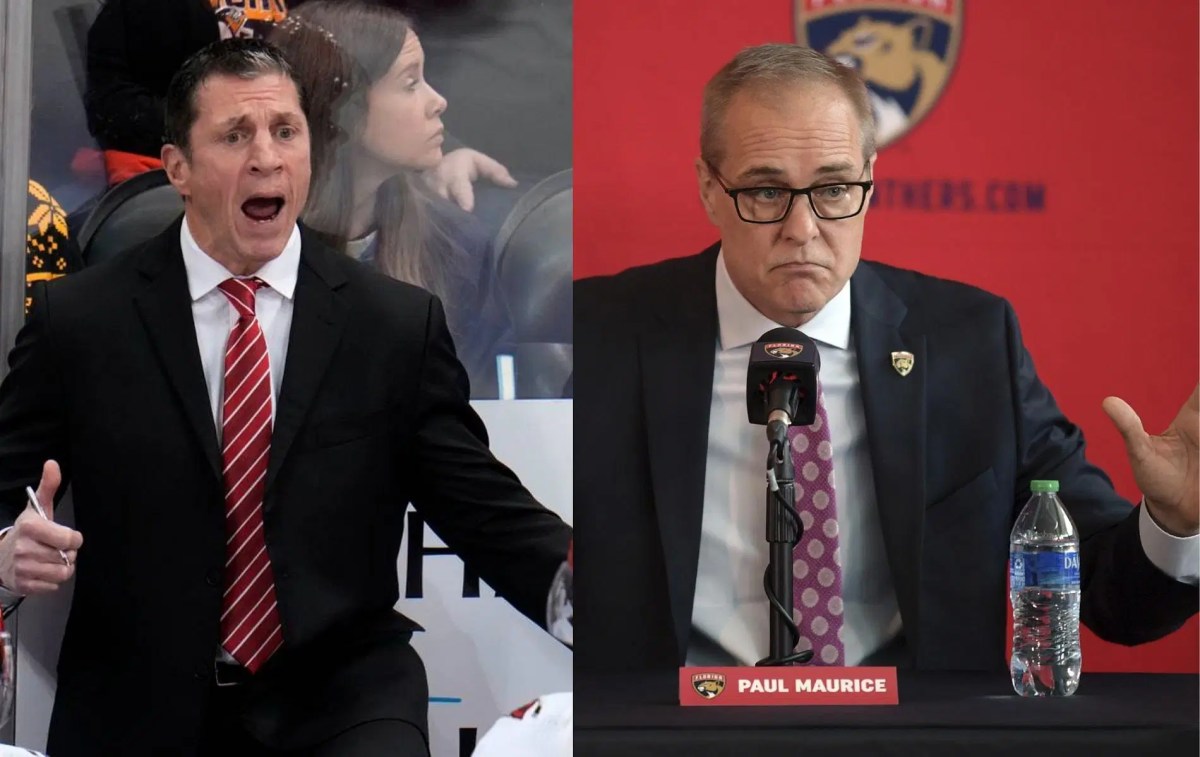
While specific quotes are unavailable, player testimonials would likely highlight the demanding yet rewarding nature of the coaching approach. Players would likely emphasize the feeling of accountability and the resulting team unity, leading to improved performance and personal growth.
Leadership Styles and Player Development
Brind’Amour and Boudreau, while sharing a commitment to a strong work ethic, possess distinct leadership styles that complement each other in player development.
Comparing and Contrasting Leadership Styles, Brind’Amour, Berube share common work ethic leading Hurricanes
Brind’Amour’s leadership is characterized by quiet intensity and a focus on individual accountability, while Boudreau’s style is more outwardly expressive and motivational. This difference in approach provides a well-rounded development environment for players.
Complementary Styles in Player Development
Brind’Amour’s emphasis on fundamentals and discipline lays a strong foundation, while Boudreau’s motivational approach encourages players to push their limits and embrace creative play. This combination fosters both skill and confidence.
Players Benefiting from Both Coaches
Many Hurricanes players have benefited from the combined influence of both coaches. Their development is a testament to the synergistic effect of their different, yet complementary, styles.
Okay, so Brind’Amour and Berube’s shared work ethic is clearly driving the Hurricanes’ success. It’s all about that dedication, right? But sometimes even the hardest workers face unexpected challenges – like hearing that Ricki’s and Cleo’s clothing stores closing is impacting local economies. It reminds us that even with great dedication, external factors can play a role, much like the unpredictable nature of hockey itself, but the Hurricanes’ coaches seem prepared to handle whatever comes their way.
Mentorship Aspects of Coaching Styles
Both coaches act as mentors, providing guidance and support to their players. They help players develop not only their on-ice skills but also their mental toughness and leadership qualities.
Comparative Player Development Strategies
| Aspect | Brind’Amour’s Approach | Boudreau’s Approach | Synergistic Effect |
|---|---|---|---|
| Skill Development | Focus on fundamentals, repetition | Encourages creativity and risk-taking | Well-rounded skillset, adaptability |
| Mental Toughness | High expectations, demanding practice | Positive reinforcement, building confidence | Resilience, confidence under pressure |
| Leadership Development | Leading by example, accountability | Empowering players, fostering leadership | Strong team leadership, shared responsibility |
| Overall Player Growth | Solid foundation, disciplined approach | Confidence, creative expression | Holistic development, well-rounded players |
End of Discussion
The Carolina Hurricanes’ success isn’t just about individual talent; it’s a testament to the power of shared values. Rod Brind’Amour and Bruce Boudreau, despite their unique coaching styles, share a core belief in discipline, accountability, and hard work. This shared ethic isn’t just a coaching philosophy; it’s the foundation of the Hurricanes’ team culture, translating into improved player development, consistent on-ice performance, and a winning mentality.
Their complementary approaches demonstrate that a unified vision, even with diverse methods, can be incredibly powerful in achieving collective success.
Essential Questionnaire
What specific motivational techniques does Brind’Amour use?
Brind’Amour’s motivational techniques are often described as quiet and lead-by-example. He emphasizes hard work and dedication, fostering a culture of accountability. He’s known for his positive reinforcement and trust in his players’ abilities.
How does Boudreau’s offensive system differ from Brind’Amour’s approach?
While specifics aren’t provided in the Artikel, we can infer that Boudreau likely emphasizes a more offensively-minded system compared to Brind’Amour, who may prioritize a more balanced, defensive-minded style. Further research would be needed to detail their differences.
Are there any examples of players who have thrived under both coaches?
The Artikel mentions this will be covered but doesn’t provide specific examples. Further research into the Hurricanes’ roster would be needed to identify players who have benefitted from both coaching styles.
